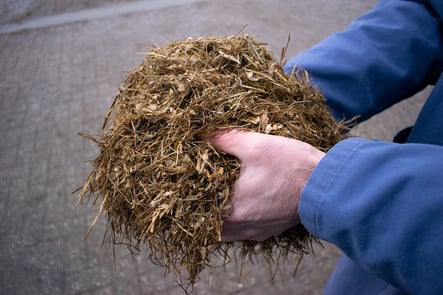Heat stress is a recurring challenge that dairy farmers throughout Europe must cope with every summer. At temperatures higher than certain thresholds (e.g. an air temperature of 25°C and relative humidity of 10%, or air temperature of 22°C and relative humidity of 50%) cows cannot effectively maintain their body temperature and their entire physiology becomes challenged. Several physiological changes take place as the cow attempts to adapt to these conditions. For example, feed intake reduces, respiration accelerates (which in turn causes an imbalance in the systemic acid-base balance) and excessive saliva is lost via drooling.
The effects of heat stress can be particularly significant in high yielding dairy cows, which ferment >25 kg DM (dry matter) each day and which - due to their high metabolic function - produce a lot of internal heat which must then be dissipated.
A lot has been written about this topic over the last few years, but in this blog we will focus on a quick overview of the different types of nutritional products that are used to support dairy cows during heat stress. These products can be classified according to their targeted effect, and some examples include:
Feedstuffs that increase energy density in the diet (by-pass fat):these help to support energy supply when intake is compromised. Besides being energy dense, fat does not ferment, so produces little heat during digestion.
Buffers or others to support rumen function (sodium bicarbonate, yeast): these products are primarily designed to alleviate the effects of rumen acidosis which can be induced by reduced rates of saliva recycling and fibre intake which are typical during periods of heat stress.
Minerals/electrolytes to rehydrate the animal (potassium): there is some debate about the relevance of sweating in cows, but we do know they lose potassium in their sweat.
Metabolites that support vasodilatation or osmoregulation (niacin, betaine): these products assist with peripheral heat dissipation and cell hydration.
Products that support general metabolic and immune functions: immune function is affected at times of heat stress.

It is obvious there is a wide array of nutritional products to choose from, some of which will have a complementary benefit. Depending on the severity of the situation and your objectives it could be advisable to implement several products at the same time to support the health and productivity of at risk animals. However, choosing the correct product(s) can be a challenge given the myriad of products available. If in doubt, the following questions may help to guide your choice:
Objective: What am I trying to achieve? Does this product complement the action of other products already being used?
Evidence: What is the research evidence behind the product in question? Does this evidence relate specifically to heat stress? How was the evidence obtained (in vitro or in vivo, in which animal species, etc.)?
Consistency: Does the product in question contain the same type, quality and quantity of ingredients as those tested in the research evidence presented?

In addition to these points, it is worth remembering that most of these types of nutritional products are designed to alleviate the impacts of heat stress, and as such address the consequences instead of preventing heat stress from occurring in the first place: you may want to consider alternative solutions that have been shown to prevent the effects of heat stress taking hold, rather than those which aim to reduce existing symptoms.
It is also worth remembering that the majority of these ingredients are intended to support lactating cows during heat stress. Whilst the impact of heat stress is very apparent in lactating cows: they eat less and make less milk of lower quality, excessive heat and humidity can also affect non-lactating animals, with the ensuing symptoms not always as obvious as those seen in the milking herd. High yielding dairy cows work at a high metabolic rate across most of their production cycle, including most of the dry period when intense tissue restoration must take place. Dry cows are often forgotten, but cows affected by heat stress during the dry period have been shown to make less milk during the subsequent lactation. It is therefore imperative to include dry cows in your heat stress management plans and to implement nutritional solutions to support these cows as well.
Several research studies have been published over the last few years on the impacts of feeding OmniGen to lactating and dry cows during heat stress: the findings include lower respiration rate and body temperatures, and higher DMI and milk yield. These research results suggest OmniGen can play a role as part of a sound nutritional strategy to support dairy cow health and productivity during heat stress.
Do you want to know more how OmniGen can support your cows during periods of heat stress? Arrange your farm consult here.
Subscribe to our blog updates and receive new blog articles in your mailbox.
